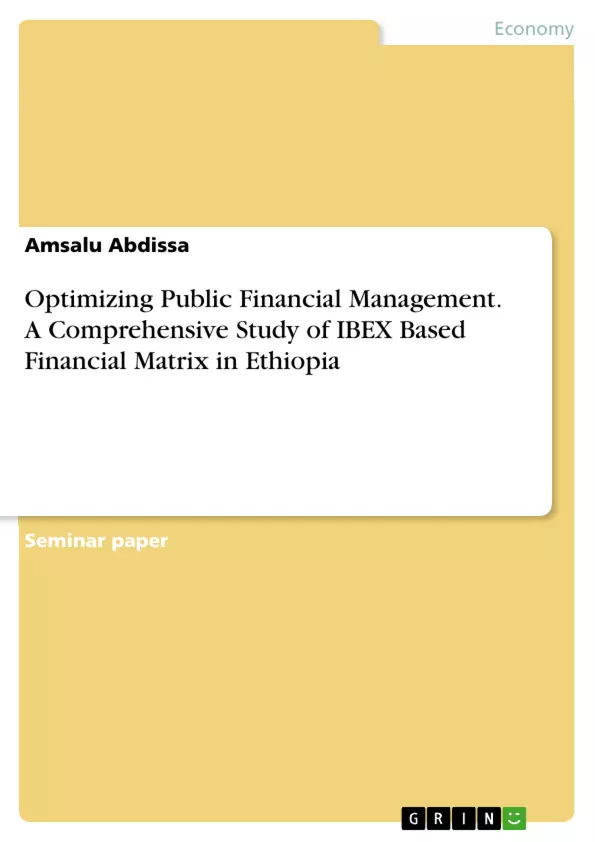This study examines the impact of the Integrated Budget Information Exchange (IBIX) System on public financial management (PFM) in Ethiopia's Oromia Regional State (ORS). Employing a mixed-methods approach, it integrates quantitative analysis, stakeholder interviews, and literature review to address theoretical, empirical, and methodological gaps. Descriptive statistics reveal dynamic financial trends, while correlation and regression analyses illuminate the influence of governance indicators.
Stakeholder insights underscore sector-specific challenges and opportunities. Recommendations emphasize refining financial processes, enhancing stakeholder engagement, and strengthening governance mechanisms. Moreover, the study advocates for longitudinal research, comparative analyses, qualitative studies, policy evaluations, interdisciplinary approaches, innovative methodologies, and cross-sectoral studies to inform evidence-based policymaking in PFM and governance reforms. By bridging theoretical, and practical perspectives, this research contributes to a deeper understanding of IBIX's impact on financial management practices and governance outcomes, offering valuable insights for policymakers, practitioners, and researchers striving for effective governance and fiscal sustainability.
Inhaltsverzeichnis (Table of Contents)
- Chapter One: Introduction
- 1.1. Background
- 1.2. Statement of the Problem
- Chapter Two: Literature Review
- 2.1. Theoretical Review
- 2.2. Empirical Review
- 2.3. Conceptual framework
- Chapter Three: Methodology
- 3.1. Research Design and Type
- 3.2. Data Source and Population
- 3.3. Data Collection Technique
- 3.4. Data Analysis
- 3.5. Summary of Reasoning Behind Methodological Choices
- Chapter Four: Data Analysis and Discussion
- 4.1. Data Analysis
- 4.2. Discussion
- Quote paper
- Amsalu Abdissa (Author), 2024, Optimizing Public Financial Management. A Comprehensive Study of IBEX Based Financial Matrix in Ethiopia, Munich, GRIN Verlag, https://www.grin.com/document/1449507



